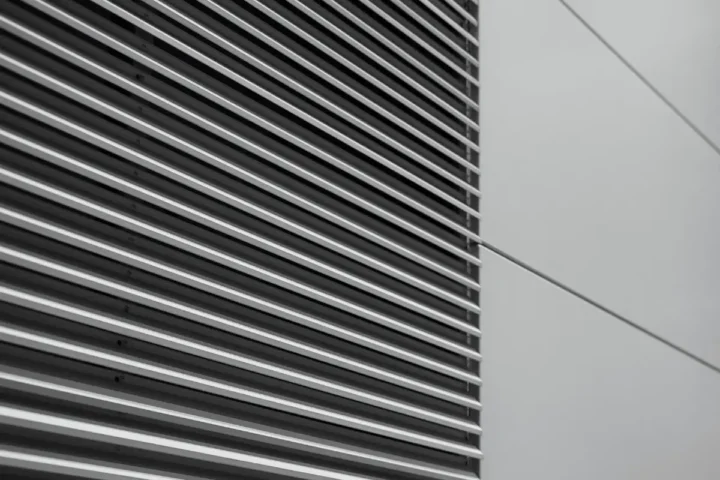The Importance of Regular HVAC Maintenance for Efficiency
Have you ever noticed how your air conditioning always seems to stop working on the hottest day of the year? It’s like it waits for the exact moment you have guests over, dinner in the oven, and no backup fan in sight. While it might feel like bad luck, the truth is that most HVAC problems don’t just appear out of nowhere—they build up slowly when systems go too long without proper care.
In the last few years, energy costs have been rising across the country. Combined with unpredictable weather patterns and longer stretches of extreme heat or cold, people are relying more heavily on their heating and cooling systems.
At the same time, the push toward energy efficiency is stronger than ever, with homeowners and businesses both looking for ways to cut costs without sacrificing comfort. Regular HVAC maintenance sits right at the center of this conversation.

It’s not just about avoiding inconvenient breakdowns—it’s about keeping your system running at peak efficiency so it uses less energy, lasts longer, and keeps your indoor environment consistently comfortable. In this blog, we will share why regular HVAC maintenance matters so much for efficiency, how it can save you money in the long run, and what steps you can take to protect your system.
Why Routine Care Prevents Bigger Problems
A well-maintained HVAC system doesn’t just perform better—it’s also far less likely to leave you sweating in July or shivering in January. Dust, debris, and normal wear and tear slowly reduce a system’s ability to operate efficiently. When airflow is restricted or components are strained, the unit has to work harder, which drives up energy use and accelerates damage.
Ignoring these small issues can lead to situations where you’re suddenly faced with common AC repairs that could have been avoided. Things like refrigerant leaks, clogged condensate drains, and failing capacitors often start as minor problems that are quick and inexpensive to fix.
Left alone, they can cause system-wide damage and even require full unit replacement. Professional maintenance visits catch these problems early, allowing for affordable fixes before they spiral into emergencies.
Service checks also include cleaning critical components like coils and filters, inspecting ductwork for leaks, and testing thermostat accuracy. These steps keep the system’s workload balanced, preventing overheating and helping each part function as it should.
Over time, this level of care can extend the lifespan of your HVAC equipment by several years, which means fewer big expenses and a much lower chance of sudden breakdowns during peak seasons.
Efficiency Is About More Than Energy Bills
When people hear “efficiency,” they usually think about lowering their monthly utility costs. While that’s certainly part of it, HVAC efficiency has a much broader impact. Systems that run more efficiently reduce greenhouse gas emissions by using less electricity or fuel. With growing attention on sustainability and climate change, even small improvements at the household level contribute to larger environmental goals.
On a personal level, efficient HVAC systems provide more consistent comfort. Rooms stay evenly cooled or heated, humidity levels are better controlled, and you’re less likely to experience the frustrating temperature swings that happen when a system is struggling.
Another overlooked benefit is the way efficiency ties into indoor air quality. A system that’s clean and operating smoothly filters air more effectively, removing dust, pollen, and other airborne irritants. For people with allergies or respiratory issues, this can make a noticeable difference in daily comfort and overall health.
The Role of Seasonal Maintenance
One of the most effective ways to keep your HVAC system efficient is to schedule maintenance before each major season—spring for cooling and fall for heating. These checkups make sure your system is ready to handle the months when it will be working hardest.
For cooling systems, this means cleaning condenser coils, checking refrigerant levels, and ensuring fans are in good condition. For heating, technicians will inspect heat exchangers, burners, and ignition systems. In both cases, filters should be replaced or cleaned regularly, sometimes as often as every one to three months, depending on usage and air quality in your area.
Seasonal maintenance also provides an opportunity to update or upgrade certain components. For example, installing a smart thermostat can improve efficiency by adjusting temperatures automatically when you’re away, while sealing duct leaks can prevent energy waste. These upgrades not only lower costs but also reduce wear on the system.
How Maintenance Saves Money in the Long Run
It’s easy to put off scheduling a maintenance visit when everything seems to be working fine. But skipping service often ends up costing far more in the long run. The cost of a single emergency repair can exceed the price of several years’ worth of maintenance visits. Worse, if a major component fails, replacement costs can be significant.
An efficient system also lowers energy bills month after month. Over the course of a year, those savings can be substantial, especially for larger homes or businesses with high energy demands. This makes maintenance not just a preventative measure, but a cost-effective investment.
Why Professional Service Matters
While there are basic maintenance tasks homeowners can handle—like changing filters and keeping outdoor units clear of debris—professional service provides a deeper level of care. Certified technicians have the tools and expertise to spot issues that aren’t obvious to the untrained eye. They can measure airflow, test electrical connections, and use specialized equipment to check for hidden leaks or damage.
Technicians also follow safety protocols that protect both the system and the home. For example, handling refrigerants requires certification and proper disposal methods to avoid environmental harm. Attempting these tasks without training can lead to injuries, system damage, or even voided warranties.
A Smarter Approach to HVAC Care
The shift toward energy-efficient living means that more homeowners and businesses are seeing HVAC maintenance not as an optional expense, but as a necessary part of protecting their investment. Smart technology is also making it easier to track performance, with some systems now sending alerts when maintenance is due or when unusual activity is detected.
Ultimately, the key to efficiency is consistency. A single tune-up can improve performance in the short term, but regular service is what keeps those benefits going year after year. With rising energy costs and increasing strain on power grids, the ability to keep your HVAC system running smoothly is not just a matter of comfort—it’s part of a larger push toward smarter, more sustainable living.
Taking the time to care for your HVAC system now will pay off in multiple ways: lower bills, fewer repairs, a longer system life, and a more comfortable home. And when the next heatwave or cold snap hits, you won’t be scrambling for emergency repairs—you’ll be sitting comfortably, grateful for the foresight to keep your system in top shape.


